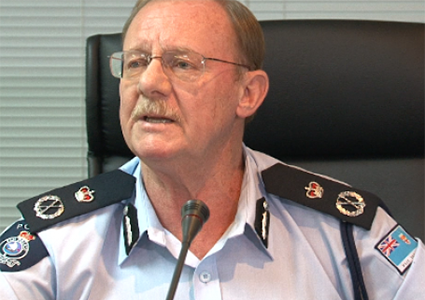
SUVA (Global Post / AFP /Pacific Media Watch): Fiji's police chief has resigned abruptly, accusing the military of interfering with his job.
Highly respected South African Ben Groenewald has been credited with cleaning up Fiji's police force and raising its professionalism since his appointment in May 2014.
But he resigned on Tuesday effective immediately, with more than six months left on his contract.
A government statement issued late Tuesday said Groenewald had quit "for personal and family reasons" and would be temporarily replaced by the military's land force commander Sitiveni Qiliho.
Groenewald, however, told the Australian Broadcasting Corporation that he was unhappy about the country's powerful military meddling in police matters.
"The fact is, I don't agree with the way they're interfering with policing," he told the broadcaster.
"I'm a true-blooded police officer and I'm not satisfied with the way that they're interfering in policing."
Officers charged
The matter came to a head this month when the military recruited three suspended police officers who had been charged with beating and sexually assaulting an escaped prisoner in 2012.
The brutal assault caused outrage when mobile phone footage leaked online, with police handling of the matter seen as a crucial test of their credibility.
Investigators had quietly dropped the case before Groenewald's appointment but he ensured it was pursued, resulting in four security personnel facing charges last month.
Three of the accused were police officers and prosecutors said at the time that the case showed no one was above the law.
But in a calculated snub, the military last week hired the three officers, who Qiliho said had been "abandoned" by the police force for doing their duty in apprehending escaped prisoners.
Fiji has endured four coups since 1987, the most recent of which was carried out by the military in 2006 under the command of current Prime Minister Voreqe Bainimarama.
While elections were held in September 2014, the military remains a powerful institution in the democracy.
Rights groups allege there were numerous cases of torture under martial law from 2006-2014 and Amnesty International last month called for a wide-ranging and independent investigation into abuse allegations.
This work is licensed under a Creative Commons Attribution-NonCommercial 3.0 New Zealand Licence.




